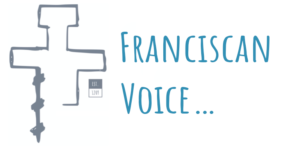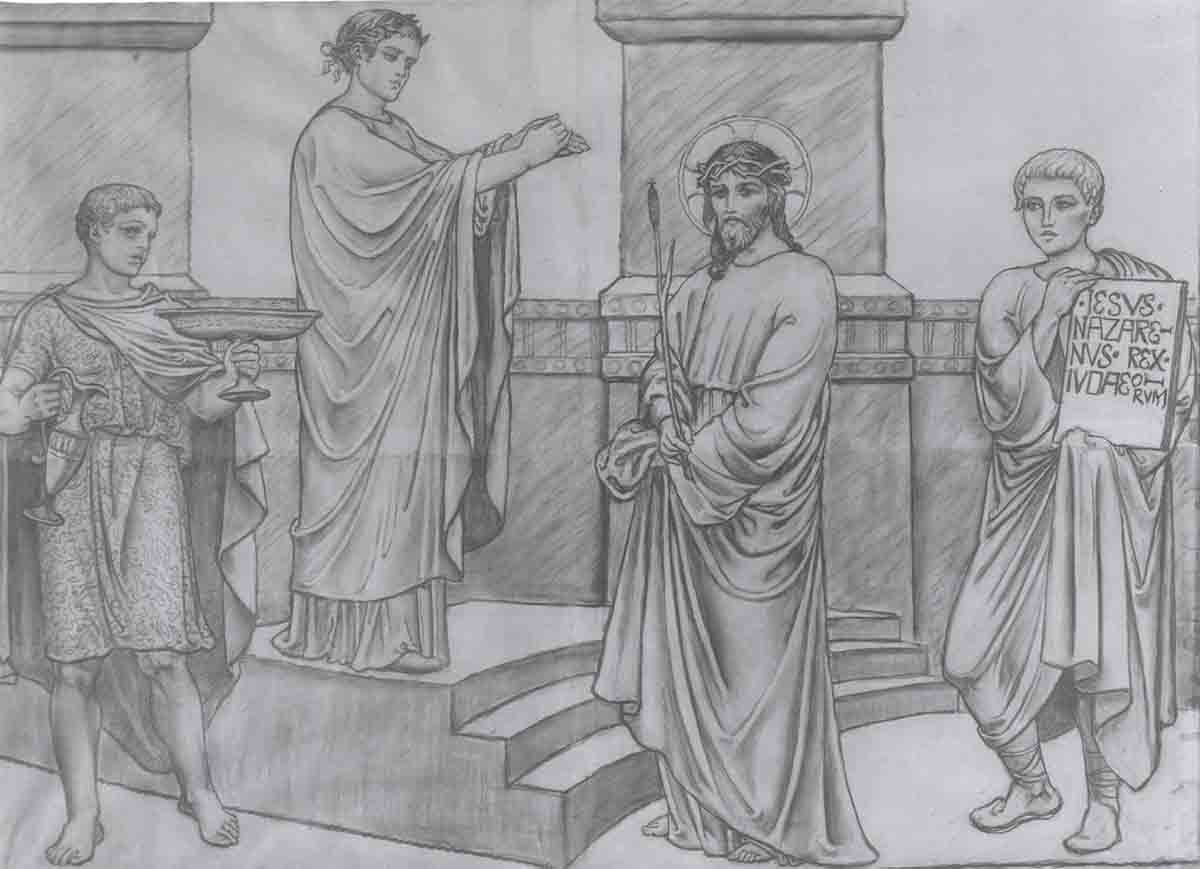The First Station of the Cross, when Jesus is condemned to death, provides a powerful reminder of the courage needed to stand up for one’s convictions.
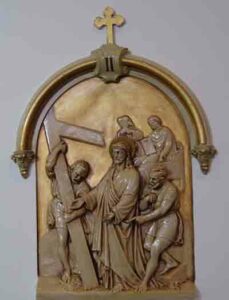
Two millennia ago, a Jewish man, claiming to be the Son of God, strived to proclaim the “Good News” of the kingdom of God to his neighbors of the Roman occupied Palestinian provinces of Samaria, Judea, and Galilee. In trying to make a point about power, religion, and community through his itinerant preaching and ministry, the Roman government, under pressure from Jewish authorities, sought to squash his movement, and so condemned him to death. Many suspected this messiah was animating insubordination to the sociopolitical status quo, as if he were riling up people as a sort of divine political figurehead to overthrow the Roman empire. Entering Jerusalem on a donkey with no military parade, Jesus made it clear that this was not the modus operandi of this messiah.
In the face of the provincial governor, Pontius Pilate, who was installed as the ordinary magistrate for Judea under Emperor Tiberius, Jesus accepts the allegation that he is a King, boldly stating he was a truthsayer whose kingship was ordained from above. Face to face with the power of empire, even after taking a scourging, Jesus does not back down from the living Gospel in the world. This is a striking and classic portrait of the cost of courageously standing up for one’s convictions. Francis of Assisi would later similarly reflect that no commitment is without a concomitant measure of vulnerability and sacrifice; this is how the friars would come to integrate Francis’ understanding of the evangelical counsels.
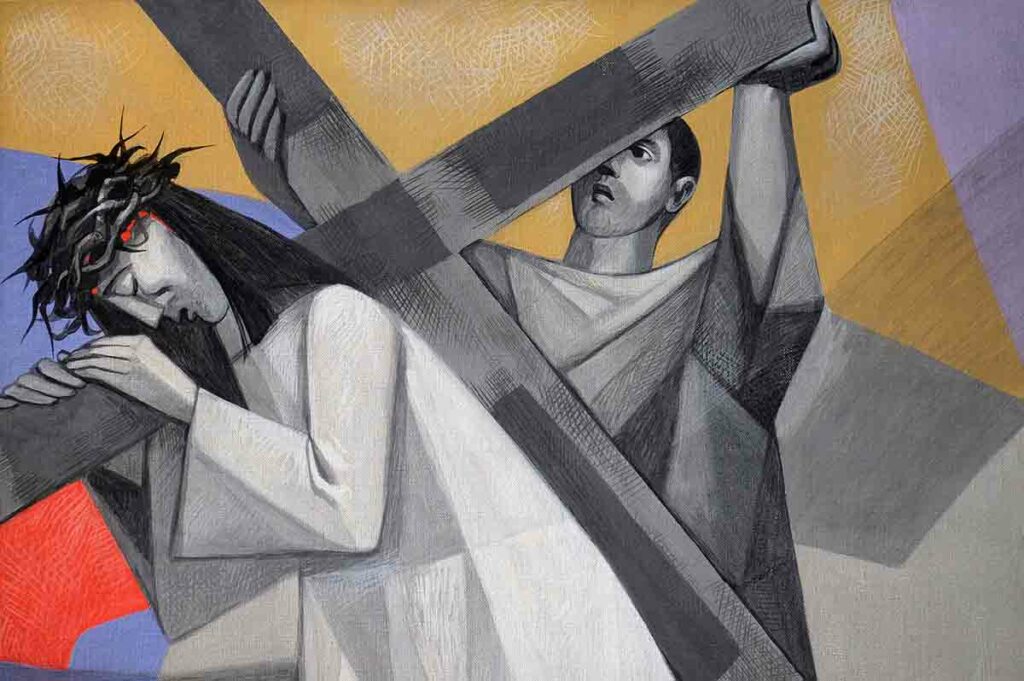
Today’s empires aren’t enforced by roman centurions and legions, per se, but are just as powerfully influential and temperamental. They come in many forms and ideologies, most always protected by state interests and those who stand to benefit from them. Many human rights defenders, including Franciscan hearted laity, Franciscan Sisters and Friars, are frequently denounced and attacked for their convictions to stand up for human dignity. We have seen this, for example, in the Americas, where members of the Franciscan Network for Migrants face threats and violence as they seek to protect people pushed away from their homes by extreme poverty, insecurity, and violence. These attacks come from both authorities that are hostile to migrants and non-state actors such as cartels that try to exploit them.
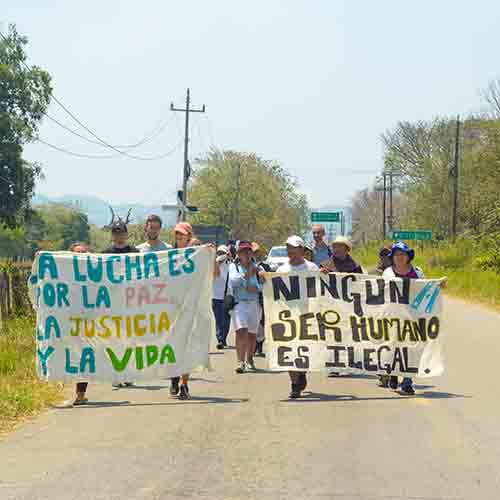
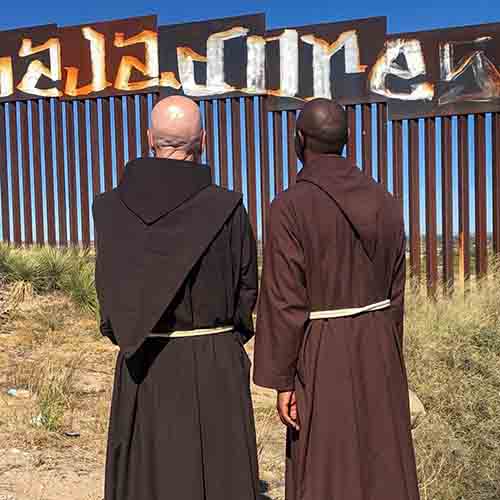
The first station reminds us of the importance of commitment to Gospel values, to making Christ known, to proclaiming God’s kingdom in an age desperate for a sign of divine love. Every year, the Franciscan Network for Migrants supports thousands of people, making a real difference in their lives by providing shelter and support on their journeys. Franciscans recall a certain Palestinian family who centuries ago also found themselves as migrants fleeing the violence of their homeland to preserve the life of an infant king. Their invisibility was necessary anonymity, but not without the undue suffering of bereft sociopolitical protections. The same king who stood bloodied and battered before Pilate is the same God who demonstrated that no courageous human act is without vulnerability, that hope breathes amidst struggles.
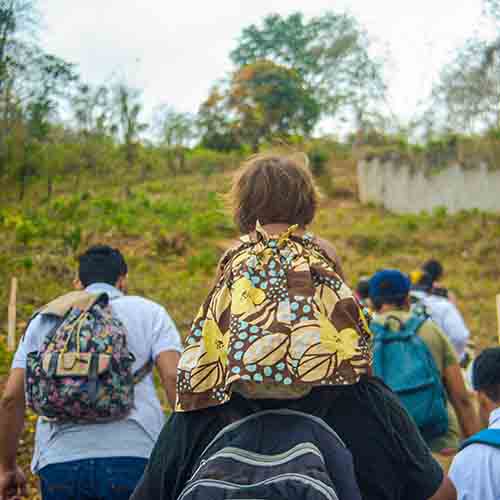
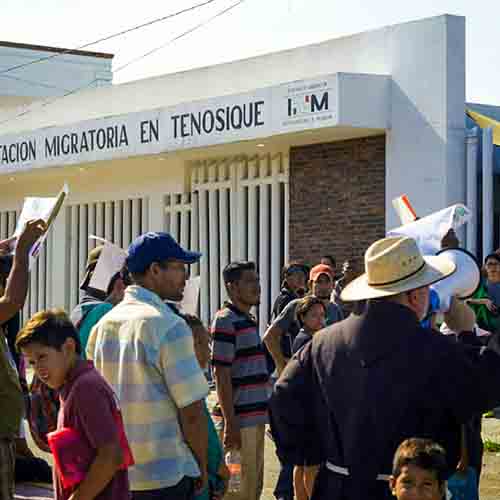
Humanitarian support for migrants is just one way we help bring relief to people condemned by a world order that permits and perpetuates their disadvantaged living in a globalized society. Making matters worse, global climate change exacerbates the drivers that spur migration (like prolonged agricultural droughts, unnatural disasters, degraded infrastructure and collapsing markets) and challenges faced by migrants as humans of unequal-status (human rights violations, stripping of social protections, political manipulation, human trafficking, murders, and enforced disappearances). As we pray with the stations of the cross and reflect on the passion of Christ, let us ask God for the opportunities to exercise our spiritual muscles this lent. Let us pray for fortitude. What issues need my courageous response to structural harms permitted in my own immediate circles of influence? In the Lenten practices of prayer, fasting, and almsgiving, how can I support migrants, refugees and asylum seekers in my vicinity? Where can I encounter Christ in the unjustly condemned people in our society? How will I answer to God’s call to the form of bold, public, political love known as justice?
Suggested Scripture: Isaiah 58:1-12 Concerning fasting that pleases God
-friar Cristofer Fernandez OFM Conv.
